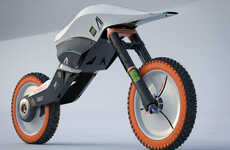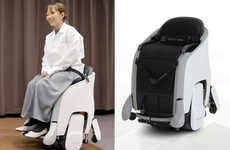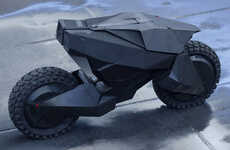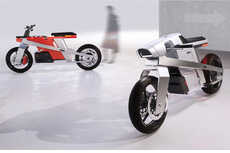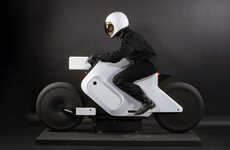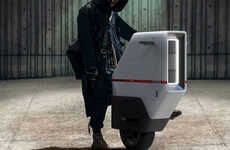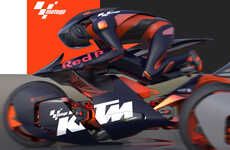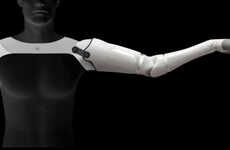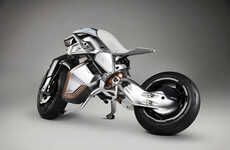
The Conceptual Honda Prosthetic Arm Sends Commands to the Bike
Michael Hemsworth — April 16, 2019 — Autos
References: yankodesign
The conceptual Honda Prosthetic Arm has been created as a solution for professional motorcyclists that will provide them with essential support to maximize riding capabilities. Fitting seamlessly overtop of the rider's shoulder, the prosthetic is designed to plug directly into the handlebar on a motorcycle and will also send commands to the bike as it's driven. This enables acceleration, deceleration and even braking without the need for the rider to utilize a hand or palm to do so.
The conceptual Honda Prosthetic Arm is the design work of Tom Hylton who explained the functionality further saying, "The bike and the prosthetic communicate with each other and the rider to calculate appropriate lean angles and aid body positioning, it will also eject with the rider in the event of an accident. It Is modular to suit trans-humeral and trans-radial amputees and I’m currently designing a leg to go with."
The conceptual Honda Prosthetic Arm is the design work of Tom Hylton who explained the functionality further saying, "The bike and the prosthetic communicate with each other and the rider to calculate appropriate lean angles and aid body positioning, it will also eject with the rider in the event of an accident. It Is modular to suit trans-humeral and trans-radial amputees and I’m currently designing a leg to go with."
Trend Themes
1. Prosthetic Integration - There is an opportunity to innovate by creating prosthetics which seamlessly integrate with sports equipment such as motorcycles and help disabled athletes perform to their full potential.
2. Remote Control Technology - Innovators can create remote control technology to enable disabled athletes to perform complex actions without directly using their hands or limbs.
3. Modular Prosthetics - Creating modular prosthetics could mean that people with different types of amputations can use the same prosthetic for different sports and activities, removing barriers to participation and increasing convenience.
Industry Implications
1. Medical Device - There is an opportunity for the medical device industry to create more advanced prosthetics which can be integrated with sports equipment to help disabled athletes compete at a higher level.
2. Automotive - Automotive companies could apply robotics and remote control technology to their products to cater to a wider variety of customers, including people with disabilities.
3. Sports Equipment - There is an opportunity for sports equipment manufacturers to create adaptive equipment which integrates with prosthetics, allowing athletes with disabilities to perform at a higher level.
4
Score
Popularity
Activity
Freshness

